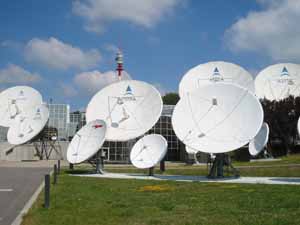 Rebuffed by the Israeli operator Spacecom, SES has signalled its intention to pursue other acquisitions, with SES CEO Romain Bausch indicating to a conference call on its 2007 financials that other talks are already in play.
Rebuffed by the Israeli operator Spacecom, SES has signalled its intention to pursue other acquisitions, with SES CEO Romain Bausch indicating to a conference call on its 2007 financials that other talks are already in play.
“Our offer has not been retained by the company [Spacecom] and I am not optimistic that they would reconsider our offer, but it is a good indication as we would be interested in small companies with two or three satellites.” Bausch added that the company was also studying the assets of larger companies that might consider releasing a part of their fleet. The offer for Spacecom was said to be in “very early stages” and was only revealed by Spacecom because of its status as a public company.
SES has reported just a 0.9% rise in profits for 2007, falling short of analyst expectations, but in line with the satellite operator’s own forecasts. EBITDA crept up to €1.090 billion from €1.080 billion and recurring EBITDA rose 12.2% to €1.125 billion.
An increase in net operating cashflow has allowed the company to invest in new financial projects, away from the overhang of its former shareholder. Organic growth was particularly strong at New Skies, increasing by 20%, which SES says demonstrates its ability to be able to derive revenue synergies from acquisitions.
Net profit fell by 7.3 pct to €404.0 million from the previous year’s €435.8 million, resulting from high interest charges in relation to the split from GE.
Revenue fell 0.3% to €1.61 billion, as anticipated by forecasters, and resulting from the loss of transponder capacity during the GE spin-off.
Utilisation rates – the amount of available transponders in service – increased from 75% (restated after the GE asset transfer) to 76.5%. The Astra segment continues to lead the field with the utilisation of 85.5%, though a fraction down from the 86.7% restated for 2006.